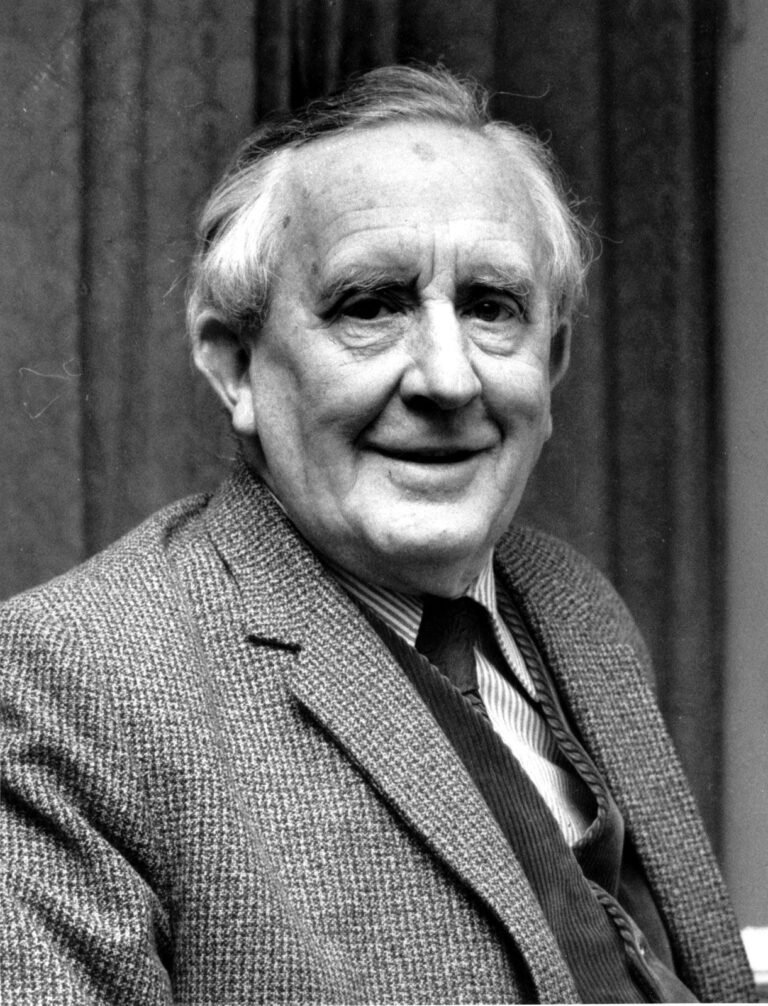George Orwell, a name synonymous with thought-provoking literature. His works explore themes of power and truth.
Orwell’s influence spans generations, sparking discussions on society and politics. Known for his dystopian novels, he delves into the human psyche and societal structures. His books, like “1984” and “Animal Farm,” offer glimpses into worlds where freedom is questioned. Orwell’s writing style is accessible yet profound, making complex ideas understandable.
He challenges readers to think critically about authority and the world around them. Through his storytelling, Orwell addresses timeless issues, encouraging reflection and dialogue. This exploration into Orwell’s life and works will uncover the lasting impact of his literature, revealing why he remains relevant today.
Early Life
George Orwell, a prominent English novelist, essayist, and critic, had a fascinating early life. His experiences during his formative years shaped his views and writing style. Let’s delve into his childhood and education, which played a significant role in his development as a writer.
Childhood
George Orwell was born Eric Arthur Blair on June 25, 1903, in Motihari, India. His father, Richard Blair, worked for the British government in the Opium Department. His mother, Ida Mabel Blair, was a Frenchwoman. The family moved to England in 1904. Orwell had two sisters, Marjorie and Avril. The family settled in a small village called Shiplake.
Orwell’s early years were marked by financial struggles. His father’s job kept him away most of the time. Young Orwell was a curious and observant child. He often explored the countryside and read voraciously. These experiences influenced his later writings.
Education
Orwell attended St Cyprian’s School in Eastbourne from the age of eight. He earned a scholarship to the school due to his academic promise. Orwell’s time at St Cyprian’s was challenging. He faced bullying and strict discipline. These experiences made him critical of the British class system.
After St Cyprian’s, Orwell attended Eton College. He studied there from 1917 to 1921. Eton was one of the most prestigious schools in England. Orwell did not excel academically at Eton. He did, however, develop a love for writing. He contributed to various college publications. This period honed his literary skills and broadened his worldview.
Orwell’s early life, marked by diverse experiences, laid the foundation for his future work. His childhood and education influenced his thoughts and writings significantly.

Credit: www.philrosen.blog
Career Beginnings
George Orwell, born Eric Arthur Blair, embarked on his career with a rich tapestry of experiences that shaped his writing. His initial works were deeply influenced by his personal encounters and socio-political observations. These early experiences laid the groundwork for his later, more famous works.
First Works
Orwell’s first notable work, Down and Out in Paris and London, is a memoir. It vividly captures his experiences living in poverty in both cities. Have you ever wondered what it’s like to see the world through the eyes of someone struggling? Orwell’s detailed narrative offers a raw and honest glimpse into the lives of the downtrodden.
His choice to write under a pseudonym, George Orwell, was a strategic decision. It allowed him to separate his personal life from his writing career. This choice also gave him a unique identity in the literary world. Would you use a pseudonym if you were a writer?
Journalism
Orwell’s journalistic career was equally impactful. He wrote for various publications, contributing essays and articles that highlighted social injustices. His time as a journalist honed his observational skills and sharpened his prose.
One of his significant pieces was The Road to Wigan Pier. It was a powerful exposé on the living conditions of the working class in Northern England. Have you ever read something that completely changed your perspective? Orwell’s journalism had that effect on many.
Orwell’s ability to weave personal experiences with broader socio-political commentary made his early career writings stand out. His keen eye for detail and straightforward style continue to engage readers and offer valuable insights. What stories from your life could inspire others if you shared them?
Major Works
George Orwell, an influential writer, is best known for his novels “1984” and “Animal Farm”. These works explore themes of totalitarianism, surveillance, and social injustice.
George Orwell, a prominent 20th-century writer, created works that remain relevant today. His books explore themes of power, control, and social justice. Two of his most famous works are “1984” and “Animal Farm”. These books have left a lasting impact on literature and society.
1984
“1984” is a dystopian novel published in 1949. It paints a grim picture of a totalitarian regime led by Big Brother. The story follows Winston Smith, a man struggling against the oppressive system. The novel explores themes of surveillance, propaganda, and loss of individuality. Orwell’s chilling vision of the future still resonates today.
Animal Farm
“Animal Farm” is a political allegory published in 1945. It uses farm animals to represent figures from the Russian Revolution. The story shows how power can corrupt leaders. The pigs, who lead the revolution, become as oppressive as the humans they overthrew. This book highlights the dangers of totalitarianism and the betrayal of ideals. Orwell’s clever use of animals makes complex political ideas easy to understand.
“`
Themes And Motifs
George Orwell’s works often explore themes of totalitarianism, surveillance, and social injustice. His motifs include the corrupting power of authority and the struggle for individual freedom. Orwell’s writing highlights the dangers of unchecked governmental control.
George Orwell’s literary genius goes beyond his compelling narratives. His works are rich with themes and motifs that resonate deeply with readers. These elements not only drive the story but also provoke thought and reflection on societal issues.
Totalitarianism
Orwell’s exploration of totalitarianism is chilling. In “1984”, he paints a stark picture of a society under constant surveillance. The oppressive regime uses fear and propaganda to control the populace.
You can’t help but compare this to modern-day concerns about privacy. Orwell’s portrayal reminds us of the importance of safeguarding our freedoms.
Reflect on how much freedom you might be unknowingly trading for convenience. Are we moving closer to Orwell’s dystopia?
Social Justice
Social justice is a recurring theme in Orwell’s works. “Animal Farm” is a prime example. The animals’ revolt against their human oppressors is a powerful allegory for social inequality.
Orwell scrutinizes the corruption of ideals. Even noble causes can fall prey to greed and power.
Consider how social movements today can sometimes lose sight of their original goals. Are we vigilant enough to prevent this?
Reading Orwell invites you to question the structures of power and justice in your own life. His works remain relevant, urging us to be aware and proactive.
Influence On Literature
George Orwell’s impact on literature is undeniable. His works remain influential, shaping the thoughts and writings of many. Orwell’s unique voice and sharp social commentary resonate with readers and writers alike.
Contemporary Writers
Many modern authors draw inspiration from Orwell. His ability to critique society and politics is unparalleled. Writers like Margaret Atwood and Ray Bradbury acknowledge his influence. They incorporate Orwellian themes in their works.
Orwell’s dystopian vision in “1984” continues to inspire. It provides a framework for writers exploring similar themes. His style and approach set a high standard. Contemporary writers strive to match his clarity and insight.
Literary Criticism
Orwell’s works are a staple in literary criticism. Scholars analyze his novels for their deep meanings. His essays offer profound insights into language and power. Critics often reference Orwell to discuss political literature.
His influence extends to discussions about truth and propaganda. Orwell’s essays on these topics are widely cited. They remain relevant in modern literary discourse. His legacy in literary criticism is vast and enduring.
Political Views
George Orwell, born Eric Arthur Blair, was a renowned English writer and journalist. His works, including the famous novels “1984” and “Animal Farm,” often reflected his political views. Orwell’s thoughts on governance, freedom, and social justice were shaped by his experiences and observations. He was a man who didn’t shy away from expressing his political stance, making his writings not just stories but powerful commentaries on society.
Socialism
Orwell was a staunch advocate of socialism. However, his idea of socialism was distinct from the oppressive regimes he saw around the world. He believed in a fair and just society where wealth and power were distributed equally. This belief stemmed from his observations of the working class’s struggles and the stark inequalities in British society.
He once worked as a dishwasher in Paris to understand the lives of the poor. This experience profoundly impacted him, leading him to champion the cause of the underprivileged. Orwell’s socialism was humane and centered on the common man’s welfare. He wanted a society where everyone had an equal opportunity to succeed.
Anti-fascism
Orwell was a vehement opponent of fascism. He witnessed the rise of totalitarian regimes in Europe and was deeply disturbed by their impact on freedom and democracy. His hatred for fascism was not just theoretical but rooted in his real-life experiences.
During the Spanish Civil War, Orwell fought against Franco’s fascist forces. This experience was harrowing and eye-opening. It solidified his belief that fascism was a threat to humanity. Orwell saw fascism as a system that crushed individuality and freedom, and he used his writings to warn the world about its dangers.
Have you ever wondered what it would be like to live in a society where your every move is watched? Orwell’s “1984” gives you a glimpse of that reality. It’s a stark reminder of why we must guard our freedoms and be vigilant against oppressive regimes.
Orwell’s political views were not just opinions but deeply held beliefs shaped by his life experiences. They influenced his writings and continue to resonate with readers today. Understanding his political stance helps us appreciate the depth of his works and the urgency of his message.
Legacy And Impact
George Orwell’s writings have left a profound mark on literature and society. His works, such as “1984” and “Animal Farm,” continue to resonate with readers worldwide. Orwell’s legacy is not just about his books, but also the ideas and conversations they inspire.
Cultural Influence
Orwell’s novels have influenced a range of cultural expressions. From movies to music, his themes of totalitarianism and social injustice are everywhere. Have you ever noticed the term “Big Brother” used in popular culture? That’s Orwell.
His works are often referenced in political debates. Politicians and activists quote Orwell to highlight issues of surveillance and freedom. This shows how relevant his ideas remain.
Enduring Relevance
Orwell’s themes of surveillance and authoritarianism seem timeless. “1984” is often cited when discussing government overreach. You might have even used the phrase “Orwellian” yourself to describe something oppressive.
His ideas also influence modern technology discussions. Think about how privacy concerns on social media echo themes from “1984.” Orwell’s work helps us question and understand our world better.
Orwell’s legacy isn’t just about what he wrote; it’s about how you and I understand our society. His impact is felt in how we view power and freedom. Take a moment to think: how has Orwell shaped your view of the world?
Personal Life
George Orwell, born Eric Arthur Blair, had a fascinating personal life. He spent time in Burma, married twice, and faced health issues.
George Orwell, known for his influential works, had a personal life marked by both joy and struggle. His experiences shaped his writing and worldview.

Credit: www.britannica.com
Relationships
Orwell married Eileen O’Shaughnessy in 1936. They had a strong bond. Eileen supported Orwell in his writing. The couple adopted a son, Richard. Family life brought Orwell much happiness. Eileen’s death in 1945 deeply affected him. Later, Orwell married Sonia Brownell in 1949. Sonia took care of Orwell during his final years.
Health Issues
Orwell faced many health challenges. He suffered from tuberculosis. This illness plagued him for years. Despite his health problems, he continued to write. Orwell spent time in sanatoriums for treatment. His health declined rapidly in the late 1940s. Tuberculosis eventually led to his death in 1950.
“`
FAQs
What Was George Orwell Best Known For?
George Orwell is best known for his novels “1984” and “Animal Farm,” which critique totalitarianism and political corruption.
What Is George Orwellian Syndrome?
George Orwellian syndrome refers to the fear of totalitarianism and oppressive government surveillance, inspired by George Orwell’s works.
What Was Orwell’s Cause Of Death?
George Orwell died of tuberculosis on January 21, 1950. The disease severely affected his lungs.
Was George Orwell A Socialist?
Yes, George Orwell was a socialist. He believed in democratic socialism and advocated for social equality and justice.
Conclusion
George Orwell’s work remains relevant and thought-provoking. His novels offer deep insights. Readers continue to find value in his themes. His exploration of power, truth, and society is timeless. Orwell’s impact on literature and culture endures. His writing encourages critical thinking and awareness.
For new readers, his books are accessible and engaging. Dive into Orwell’s world and discover his lasting influence.








